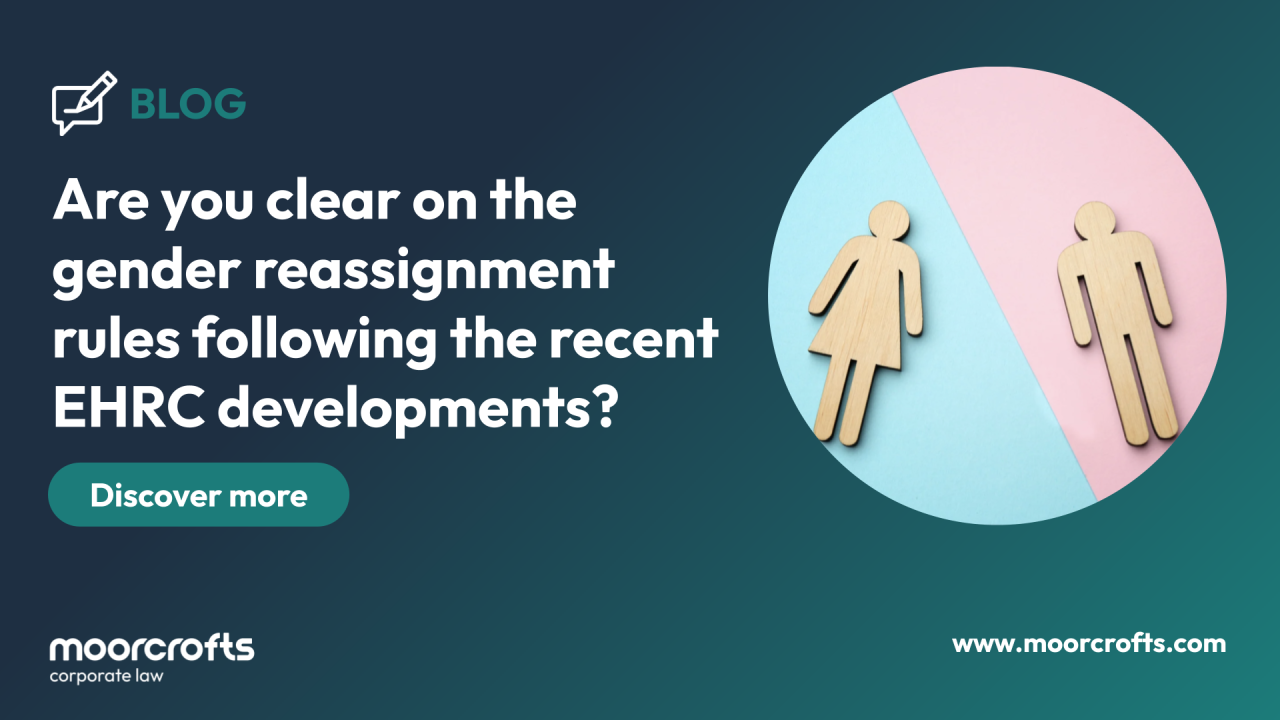Are you clear on the gender reassignment rules following the recent EHRC developments?
In the wake of the Supreme Court ruling in For Women Scotland Ltd v Scottish Ministers [2025], the Equality and Human Rights Commission (EHRC) is revising its guidance on single-sex and separate services. On 27 August 2025, the EHRC announced regulatory action following its review of evidence about the misapplication of the Equality Act 2010 concerning single-sex spaces and gender self-identification.
In May 2024, the government invited input on whether organisations incorrectly stated that people have a legal right to access single-sex spaces based on self-identified gender.
From 404 examples submitted, 42 cases (about 10%) were found to have misinterpreted the law. The EHRC requested all 404 examples to assess the broader picture and inform updates to its Services Code of Practice.
The EHRC found incorrect policies in sectors like policing, education, and health. It is now contacting 19 organisations, requiring them to:
- Review and revise the misleading policies.
- Withdraw policies that falsely suggest an automatic right to single-sex spaces based on self-ID.
- Submit a timetable for corrections.
EHRC will monitor compliance and may take further action if necessary.
An interim update was published by EHRC in April 2025 and later amended to reflect this legal ruling.
This regulatory action reflects an increased focus on ensuring clarity and lawful interpretation of rights under the Equality Act.
This developing legal context formed the backdrop for the recent judgement in Haynes v The English Blackball Pool Association. In that case, the pool association chose to exclude transgender women (i.e. individuals assigned male at birth) from competing in the female category of its tournaments. The Claimant, professional player and transgender woman, who held a Gender Recognition Certificate, Harriet Haynes, had previously played in Kent Women’s A team, before the English Blackball Pool Association (EBPF) changed its rules in August 2023, so that only biological females would be permitted to play in the women’s team.
The Claimant argued that this exclusion constituted direct discrimination on the grounds of gender reassignment.
However, the county court rejected the claim, finding that no unlawful discrimination had occurred. Referring to the Supreme Court’s decision in For Women Scotland, the court affirmed that under the Equality Act 2010, the term “sex” should be interpreted as biological sex, not the legally recognised gender indicated on a Gender Recognition Certificate. As such, the proper comparator for the Claimant was a biological male without the protected characteristic of gender reassignment. Since such an individual would also have been barred from the women’s category, the Claimant could not demonstrate less favourable treatment.
Although not essential to the outcome of the case, the court also clarified the following points:
- Pool qualifies as a “gender-affected activity” under section 195 of the Equality Act 2010, meaning it can lawfully be divided into male and female categories to ensure fair competition.
- The pool association, in organising tournaments, was providing a service and treating men and women differently in doing so. However, this distinction was not deemed discriminatory, as it was a proportionate means of achieving a legitimate aim i.e. ensuring fairness in competition and encouraging greater female participation in the sport.
For Employment Law advice, please contact our Employment Team.



